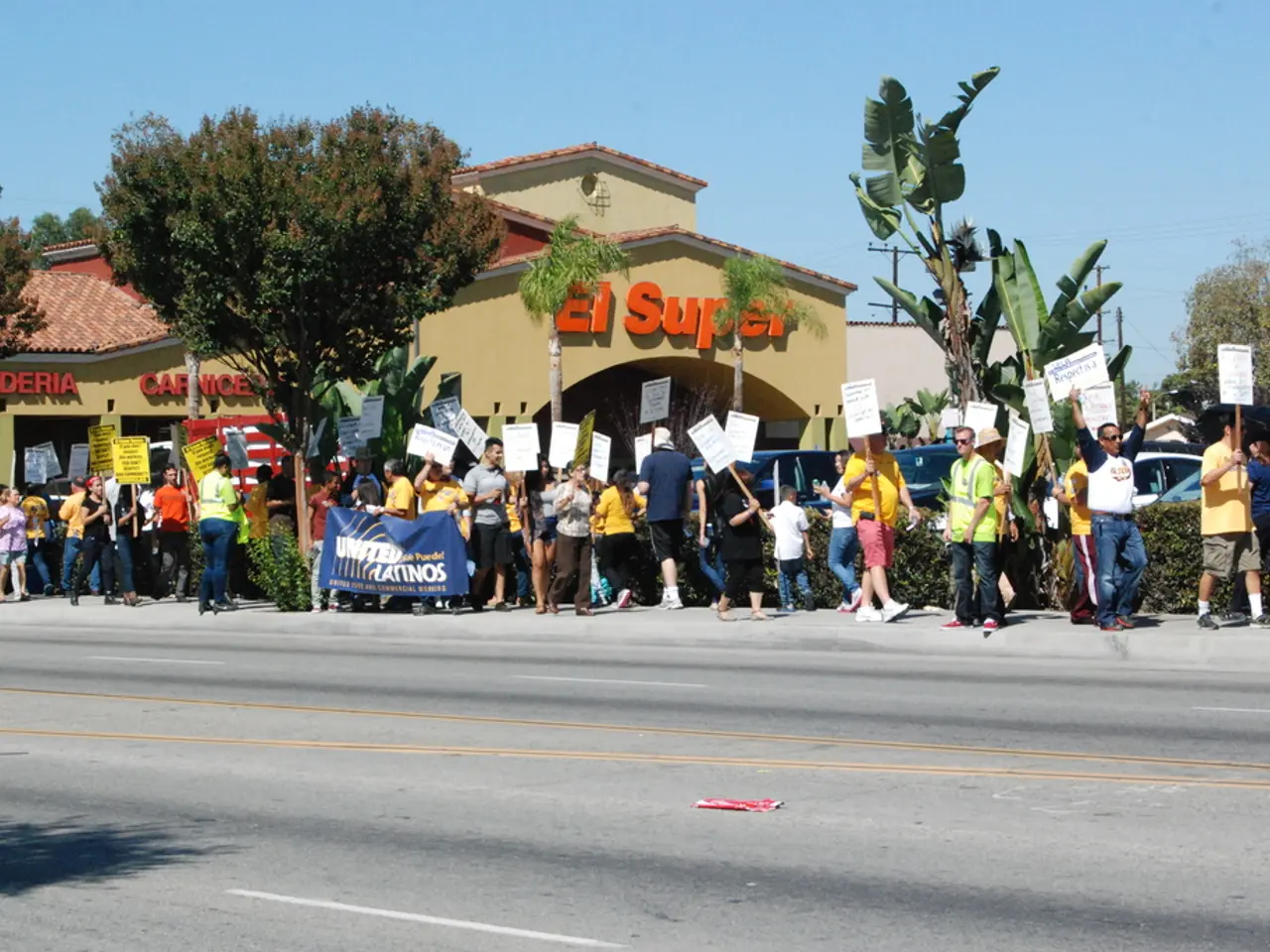Urgent Political Election Action Plan
In the final stretch of an election campaign, there's a flurry of activity as candidates and their teams work tirelessly to secure votes and ensure a successful Election Day. Here's a comprehensive last-minute checklist for political campaigns during election season.
Legal Compliance
- Submit all required campaign finance disclosure statements by the deadline to avoid fines.
- Ensure all campaign signs and advertisements comply with local regulations on placement and content.
Election Day Readiness
- Confirm poll worker coordination, voting locations, and that team members know their roles for monitoring and assisting voters.
- Prepare for election day operations, including handling spoiled ballots and ensuring ballot security.
Voter Contact and Mobilization
- Finalize voter outreach plans, including phone banking, canvassing, social media activity, and last appeals to encourage turnout.
- Use strong passwords and two-factor authentication for digital campaign accounts to protect against hacking or misinformation attacks.
Security and Access
- Understand how your candidate’s name appears on the ballot (randomized or otherwise) and where to track election night updates online.
Finance and Budgeting
- Review campaign finances to manage spending through election day, especially if relying on donations versus self-financing or loans.
- Reconfirm awareness of applicable campaign finance laws and limits on contributions or expenditures.
While this checklist is somewhat generalized, specific local rules and resources (such as a candidate handbook) provide detailed instructions and deadlines critical for compliance and success on election day.
Remember, effective communication strategies in the final 48 hours include delivering concise, persuasive messages, reinforcing key policy points, and maintaining direct communication with target voter groups. High visibility through rallies, interviews, and public appearances can energize supporters and sway undecided voters in the final days.
Last Minute crisis situations should be handled by activating a crisis response plan, designating a spokesperson, and issuing clear, timely statements to manage public perception.
In the final days, social media management should involve posting high-frequency, engaging content with clear calls to action, responding to comments quickly, and monitoring for misinformation. Leveraging media coverage involves securing interviews, issuing press releases, and highlighting endorsements to maintain visibility in the news cycle.
Lastly, immediately after Election Day, campaigns should thank supporters, monitor results, prepare for post-election statements, and ensure compliance reporting. Last minute door-to-door canvassing should focus on undecided voters, use personalized scripts, track interactions, and prioritize high-impact neighborhoods.
Avoid common mistakes in last minute campaigning, such as overpromising, neglecting volunteer support, ignoring compliance rules, and failing to target the right voters. With careful planning and execution, your campaign can make a strong finish in the race to Election Day.
- To guarantee that all resources are effectively utilized, review campaign finances to manage spending through Election Day, especially if relying on donations versus self-financing or loans.
- In the final days, social media management should involve posting high-frequency, engaging content with clear calls to action, responding to comments quickly, and monitoring for misinformation.
- High visibility through rallies, interviews, and public appearances can energize supporters and sway undecided voters in the final days.
- Understand how your candidate’s name appears on the ballot (randomized or otherwise) and where to track election night updates online.
- While this checklist is somewhat generalized, specific local rules and resources (such as a candidate handbook) provide detailed instructions and deadlines critical for compliance and success on election day.
- In the final 48 hours, effective communication strategies include delivering concise, persuasive messages, reinforcing key policy points, and maintaining direct communication with target voter groups.
- Last minute crisis situations should be handled by activating a crisis response plan, designating a spokesperson, and issuing clear, timely statements to manage public perception.
- Lastly, immediately after Election Day, campaigns should thank supporters, monitor results, prepare for post-election statements, and ensure compliance reporting.






